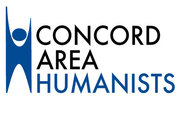Posted on January 9, 2014 by David

Last night the Concord Area Humanists held their monthly meeting with Ellery Schempp giving a presentation on the 50th anniversary of the Supreme Court ruling outlawing Bible reading in the public schools (Abington vs Schempp). During the Q and A session that followed, the question was raised why so much more money is given to spend by the irrational groups (including Fundamentalists) attempting to force their beliefs into our society. The disparity is amazing. There was recently a study by the University of Southern California showing that three-quarters of all American giving goes to religion and religiously affiliated organizations. Of course, most of this money goes to the administration costs of the religious organization as a government subsidy as a tax break. Having been raised as a Fundamentalist, I pondered this conundrum on my drive home.
The first thought that came to my mind was one word: Passion. Fundamentalists are known for their passion much more than for their rational approach to issues. When I think of the televangelists, or the Charismatics, or Jonathon Edward's blazing sermon “Sinners in the Hands of an Angry God”, I think of very fiery emotional and passionate behaviors. Christianity Today, a major Fundamentalist organization, says that Pentacostalism is the fastest growing Christian movement in the world including the United States and Europe. And I realized that this wasn’t restricted to religions as I considered the demagogues in the Tea Party, and of course one of the greatest demagogues in recent history, Hitler. They all appeal to the emotions, especially the emotion of fear, much more than the rational part of the mind. If I could coin (bitcoin?) a phrase it would be “If I can instill passion in a person, I can motivate them to do anything.” (I should also say that this includes passionate lovers who have been led astray for irrational reasons.)
But while this might explain the effect, it does not really explain the cause. To delve into the cause, I want to paint a picture of a model of the mind. Our mind consists of a rational mind (prefrontal lobes) and also an irrational part. The term “irrational brain” is a poor choice of words because it has a negative effect on many people – unwarranted as it is. This irrational brain includes our intuitive mind, our creative mind, and, most important for this essay, our emotional reactions (amygdala). Although it is a simplification, I’m just going to discuss these two parts of the brain and refer to them as the rational mind and the emotional mind.
The rational mind uses the language of logic, science, math, etc to determine what is True or what is Not True – Aristotelian Logic. It has a binary function where something is either one or the other, True or False, Right or Wrong. This leads us to knowledge which is why we have such the knowledge explosion that we have today – especially in science and neurobiology - the study of the mind through scientific observations using fMRI’s (functional MRI’s). However the emotional mind uses the language of metaphor and stories to discern Truth. There can be many Truths so it is not binary like the rational mind. Some of these Truths may even be opposite of other Truths. Like a pizza divided into slices. Each slice points to the center, the Truth, but some may be opposite from another or exist alongside of other Truths. These Truths lead to wisdom.
The emotional mind is where we find our “Fight or Flight” response and our whole spectrum of emotional reactions. This emotional mind is responsible for emotional reactions rather than emotional states like joy, happiness, etc. And so the language is story and metaphor which will cause these emotional reactions. There is little emotional reaction to the language of the rational mind. The rational mind is the main organ that separates humans from other animals and is responsible for recognizing and identifying the emotional reactions and then processing them and then directing our behavior accordingly. So a person with a highly developed rational mind will control their emotional reactions much more than a person with a lesser developed rational mind. The rational mind does not deny or dismiss the emotional reactions, but it recognizes these reactions, processes them in the frontal lobes, and then determines the best behavior. An emotional person will only react without reflecting.
So a person who is much more emotionally driven will react emotionally without reflecting and will experience and react to passion much more than a rationally driven person. An emotionally driven person will also desire a hierarchy structure of society where there is someone telling them what to do and how to do it. A rationally driven person will think independently and will often reject the authority of a hierarchy. So it becomes easy for a charismatic leader to inflame a congregation and then to direct their actions such as how to donate their money. Imagine a person addressing a Humanist group and requiring them to pay 10% of their income (tithe) to the local organization, and then to pay more money (offerings) to outside charitable causes.
(The following is merely a mind game and not meant to say what is Truth, to say nothing about what is True.) An interesting metaphor might be Freud’s concept of Displacement. (Freud's ideas are much better understood as metaphor rather than strict science.) Here he posits that if one emotion is squeezed, or controlled, then it will appear elsewhere in an out-of-proportion way in another emotional scene. Like a balloon where you squeeze one part of it, and the balloon pops out on another side. If Fundamentalists are sexually repressed, then it might be natural to have them express their passions in an exaggerated manner about other things such as social causes.
But in a more scientific vein, Humanists tend to be more rational about the matters of life so there is often not much Passion found. And even if there were passion, it is not directed by a hierarchy telling us how to vent our Passion and granting us salvation for doing what we’re told.
What’s the solution? Educate people to use the skills of critical analysis.
David Kimball


1 Comments
But also, "What's the solution? Encourage more rationalists to give money to organizations that counter the repressive, Fundamentalist organizations and do so myself."
Add your comment